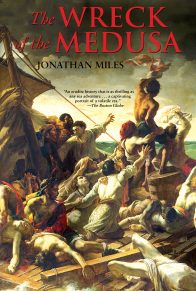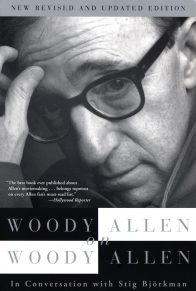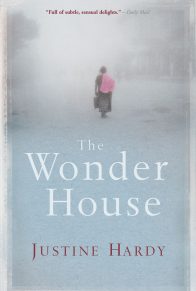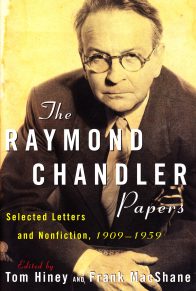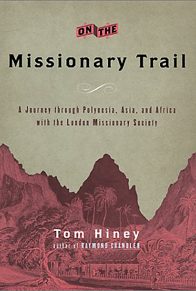‘Destiny’,
sent to the Westminster Gazette, never published.
When no more shadows veil the silent city,
And down the hunted way no phantoms go,
When no more kings are proud or ladies waiting,
And no more pale narcissus decks the row,
When all the sighs are hush’d and musics broken
Along the moon-dazed garden chill’d and grey,
When fades each bud that was a lover’s token,
Shall our love wither too and pass away?
When all the lost are worn and lonely,
And all the tunes are dim and sad and old,
When all the burning dreams we dream are only
Dead leaves too dead to tremble in the cold,
When no more roses droop or lillies falter,
When all the useless hours are wept and [unreadable]
God and silence by the broken altar
Shall our love be a hollow in the night?
Chandler’s reviews and sketches from this time, written for the same London journals, show more of the voice that was later to emerge.
‘The Remarkable Hero’,
the Academy, 9 September 1911.
The time is not distant beyond the memory of living men when the hero of a typical novel had to be, if not a person of title, at any rate a man of tolerable family. If, in the days of his affluence, he did not possess a valet, or if when leaving home under a cloud he could not bestow his last sovereign on a head gardener, he was not likely to have many admirers. The snobbishness of those days was not greater than the snobbishness of these, but it was far simpler and more straightforward. It demanded quite honestly, on behalf of the middle-class reader, to mix with its social betters. No doubt it was perfectly right; if a man cannot choose his company even in novels things are in a bad way. But, however that may be, the distinction of the hero of that time was on the side of birth and breeding. He might be compelled by circumstances to associate with coalheavers, but even when his coat was shiny at the elbows the cabmen called him ‘My lord’. When he told the landlady of his humble lodging that he had come into a marquisate and forty thousand a year, she always reminded him that she had known him at the first for a ‘real gent’. His brains might be of feeble quality – indeed they usually were – but his manners were of the best. He might not know how to counter the most childish plot, but he invariably knew what to do with his hands in a drawing-room, a problem which has puzzled more people than ever troubled about the riddles of life and death.
In these days, however, good breeding is usually left as a minor perquisite to the villain. The hero may, as far as his social position is concerned, be anybody. He may drop his aspirates, he may be a boor, he may be ignorant of the most elementary rules of polite behaviour. Common honesty is not in the least a necessity to him. If he is fiendishly ugly, his adventures are all the more piquant. He may even be deformed, and his Life will sell in tens of thousands. He may squint, he may be club-footed, he may wear ready-made clothes, he may smoke in church, he may shoot foxes, he may browbeat women and patronize old men, he may do any of those forbidden things, for doing the least of which we would cut our dearest friends, and yet he may charm voracious multitudes. We care nothing for his clothes, nor his manners nor his antecedents nor his actions; in these respects we are all tolerant. But there is one quality which we demand in him: he must be a remarkable person. It matters very little in what his fate lies, whether in art, finance, sport, politics, exploration, swindling, or throat-cutting, but his intellect must be of the cast of great men.
The superficial reason is not very far to seek. Satirized out of his old, honest, matter-of-fact reverence for rank and wealth, the commonplace reader has to satisfy his inborn humility by looking up to an intellectual superior. Forbidden to act the flunkey to the aristocrat, he allows himself to adore the prima donna, the brilliant statesman, the swaggering freebooter, or the subtle master of intrigue. As he can no longer delight in the conversation of a duke, he accepts instead the conversation of an eminent house-breaker. And seeing that, however slight his knowledge of aristocratic circles might have been, his acquaintance with men of genius is even slighter – he is seldom able to detect the fraud which is so often played upon him. He may have a shrewd conception of how a duke would behave in a given situation, but a man of genius is above laws, and his actions are therefore incalculable. So the reader takes, with shut eyes and open mouth, whatever the journeyman novelist cares to offer him in the way of inspired heroes. He is unaware that the great detective whom he so much admires is as unlike any possible great detective as he is unlike a Patagonian anteater; these mysterious and incomprehensible actions pass not, as they should, for the well-meaning, but rather futile, efforts of an uninspired writer to simulate inspiration, but for the unfathomable deeds of a demigod. The more extraordinary they are, the more convinced the reader of his hero’s genuineness. In the result, one reads of a great realistic author who studies his situations by kidnapping people, and forcing them to act for him; one finds a great thief who lives, surrounded by objets d’art, in a castle in the middle of a sea-girt rock; one finds a great poet who, by way of seeking inspiration, wanders like a madman over the face of the earth for several months, then, returning home, scribbles for four days without stopping, and finally falls dead over his completed masterpiece. The convenience for a second-rate author of a public which accepts such creations may easily be estimated. If extravagance be a sign of genius, then it is infinitely easier to portray genius than mediocrity. The man in the street is quite capable of judging his kind, but to judge the weird antics of an inspired soul he has only the unreliable experience of nightmares. He can but devour and hold out his innocent hands for more. So the curious fashion grows, until the remarkable becomes more common than the commonplace; an amusing development enough, if one does not pause to reflect how swiftly this highly-seasoned fare can destroy any lingering taste for the products of a restrained and disciplined art.
‘Realism and Fairyland’,
the Academy, 6 January 1912.
Fairyland is Everyman’s dream of perfection, and changes, dreamlike, with the mood of the dreamer. For one it is a scene of virgin, summery Nature undefiled by even the necessary works of man. For another it is a place where there exist no codes, conventions, or moral laws, and where people love or hate at sight, having their virtues and vices writ large upon them. For another it is a champaign dotted with fine castles, in which live sweet ladies clad in silk, spinning, and singing as they spin, and noble knights who do courteous battle with each other in forest glades; or a region of uncanny magic, haunting music, elves and charmed airs and waters. For still another it may be an anarchy of the beautiful touched with terror, tenanted by spirits who must be propitiated with cakes left on the window-sill and soft words spoken up the chimney at night. No two minds see fairyland alike or demand like gifts from it, and to the same fancy it alters from day to day, as the winds change which blow about a house, and with as little apparent reason. Nevertheless it gives by contraries so accurate a reflection of life that the spirit of an age is more essentially mirrored in its fairy tales than in the most painstaking chronicle of a contemporary diarist.
The visions of what is called idealism are only reflections of fairyland and its experiences; they share with the scenes of that wonderful domain the merit of telling the truth about those who see them, and of telling it the more clearly because unconsciously. Yet there have arisen in the last half-century, more or less, certain long-faced, earnest, intent, and seemingly very daring people, who inform us sadly that we must look dull facts in the face if we would see truth, that we must not delude ourselves with rosy dreams of golden castles in Spain. By way of showing us how to proceed they rake over the rubbish-heaps of humanity in its close alleys and noisome slums to find fragments of broken moral crockery, to nose out the vices of unfortunate people, to set upon them the worst possible interpretation for the social system, and, by the simple process of multiplication, to construct from them what they consider typical human beings. Determining to hide nothing, and to show every side of life impartially, they forget that the things which necessarily strike them most in their impartial survey and appear most emphatic in their work are mere offal of the senses; as a man with a delicate sense of smell would find unpleasant odours the chief feature of life in a hovel of disease. Boldly declaring that they will cast aside all factitious optimism, they automatically choose the dark aspect of all things in order to be on the safe side; as a result unpleasantness becomes associated in their minds with truth, and if they wish to produce a faultlessly exact portrait of a man, all they need do is to paint his weaknesses and then, for the sake of propitiating the instinct of kindness left by some oversight in their hearts, to explain that his shortcomings are the inevitable consequences of a mistaken scheme of life. There remains only to set down the man thus portrayed in a milieu, the dullness, sordidness, and stuffiness of which is ‘reproduced’ with a monotonous and facile elaboration hitherto unknown in art, and a masterpiece of realism is obtained. It is hardly surprising that when such stuff is given to tired and overworked men and women with unsteady nerves as a study for their leisure hours, it is apt to cause a certain’ flavour of despondency and pessimism to become characteristic of the time, with the social result that if any difficult problem of life clamours to be solved those best equipped for solving it have utterly lost all youthful hope and cheer and have no energy for the labour. They pass on with sighs, leaving the task to bureaucrats and party politicians.
It is an old sneer, no doubt, that realism is a picker-up of life’s refuse, and it may be just that any point of view which belongs to a large class of people should find representation in art. But it has never been proved to the satisfaction of the most reasonable and easily convinced visionary that the realistic is a definite point of view. For in truth it is only the mood of Everyman’s dull and depressed hours. We are all realists at times, just as we are all sensualists at times, all liars at times, and all cowards at times. And if it be urged that for this reason, because it is human, realism is essential to art, the obvious answer comes, that this claim entitles it at most to a niche in the temple, not as at present to a domination of the whole ritual, and that truth in art, as in other things, should not be sought by that process of exhaustion encouraged so fatally in our age by the pedants of science, and by their fallacy that it may be discovered by considering all the possibilities: a method which surrenders intuition and all the soul’s fine instincts to receive in exchange a handful of theories, which, compared with the infinite forms of immortal truth known to the gods, are as a handful of pebbles to a thousand miles of shingly beach.
Faulty as its philosophy is, however, the realistic creed which dominates our literature is not due so much to bad theories as to bad art. To be an idealist one must have a vision and an ideal; to be a realist, only a plodding, mechanical eye. Of all forms of art realism is the easiest to practice, because of all forms of mind the dull mind is commonest. The most unimaginative or uneducated person in the world can describe a dull scene dully, as the worst builder can produce an ugly house. To those who say that there are artists, called realists, who produce work which is neither ugly nor dull nor painful, any man who has walked down a commonplace city street at twilight, just as the lamps are lit, can reply that such artists are not realists, but the most courageous of idealists, for they exalt the sordid to a vision of magic, and create pure beauty out of plaster and vile dust.
Before leaving for America and abandoning his early bid for immortality,
Chandler wrote a poem, never sent for publication, called ‘Free Verse’.
Yes, friend, the old ways are very becoming
To a certain type of mind,
Just as a poke bonnet
Is becoming
To a certain type of face.
But I find somehow that I require
A little more liberty,
To express my immortal soul
(That is, if it is immortal, which one rather doubts
After reading Freud).
You see, it’s such a lot of trouble
To learn metre
And rhyming,
And there aren’t many metres,
And still fewer rhymes,
And after all, when one has learned them,
What is it all worth?
You have something to say
To make it tell in that sort of cut and dried form.
And I haven’t.
Really in this disintegrating civilization
What could one have to say
Except
That it’s all an infernal bore,
And everyone knows that already.
But that other sort of poetry
Is like marble.
Anyone, I think, could make a sort of face
Out of putty
Even if only grotesque (and grotesques have their appeal),
But out of marble?
One rather, you know, needs to be a sculptor for that,
That is to say,
A fellow who has taken a little trouble
To learn his beastly business.
Your cameo carver, just think how long he has
To live with that little picture of his
Before it’s done.
Mustn’t he get sick of it? Of course, you say,
He would
If it wasn’t a good one.
And mine aren’t, you know.
I’d flatter my ideas by even
Calling them
Moods.
A little twist of phrase or thought
This way or that
To give it an air of meaning such a lot
More than it says.
A mere trifle of nervous reaction
From the sound of the elevated,
Or too much coffee,
Or a bad night after smoking till 2AM
One wouldn’t surely use form for that sort of thing?
And yet it’s worth putting on paper,
Partly because it’s amusing
And easy,
And partly because
Occasionally (very occasionally)
One gets paid for it.
This stuff of mine is pure inspiration,
It’s as easy as falling off a log,
The only difficulty is knowing where
To stop,
But I get that by just meandering
On
As long as I feel like
And then
Taking every third line
The gaps in the meaning (if any)
Make it all the more
Interesting.
And words themselves mean such a lot,
The cute little things.
Take ‘mauve’ for example,
What a lot that simple word seems to mean,
So much more than one can say.
I like
To put a word like that down
And just look at it
With my head on one side,
And run around it,
Around and around it
Until I get a bit dizzy,
And then sit down and
babble a bit
About any old thing that comes
into
My head. Finally I gather it up
With my poetic gift, a sort of shovel, you know,
And spatter it whimsically on a
few
Sheets of paper,
And there you are.
A poem more or less. At least
We call it that
For convenience.
However, old friend, I hope you’ll regard
All this as confidential,
Strictly entre nous, as it were,
Because
Lots of people are talking quite seriously
About our American intellectual
Revolutionists
And one wouldn’t want it to get about everywhere
That we’re only intellectual
Bankrupts,
With a nice sense of the discords
Of a cracked fiddle
When fiddled by a rather indifferent performer
At the conflagration
Of a rather more than indifferent
Universe.
Contents ©2000 by the Estate of Raymond Chandler. Editorial arrangement ©2000 by Tom Hiney and Frank MacShane. Reprinted with permission from Grove Atlantic, Inc. All rights reserved.





